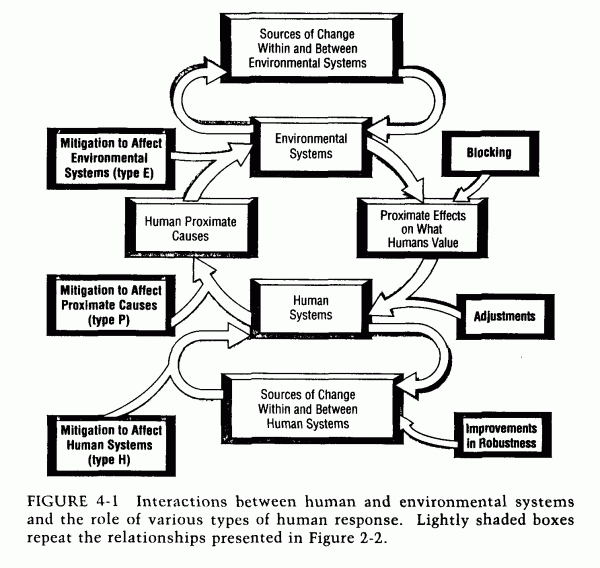
There are two contrasting approaches to understanding human being’s responsibility and capacity to change difficult social or environmental problems. One perspective places accountability on the shoulders of the individual; this is the idea that a single person has the power to make changes in their personal conduct that could alter the course of complex issues. In his essay on individualization, Michael Maniates cites this mode of thinking as reductive and unimaginative; that in this philosophy, “there is little room to ponder institutions, the nature and exercise of political power, or ways of collectively changing the distribution of power and influence in society.” (33) When applied to environmental obstacles, the individualization narrative promotes simple, everyday actions that a single person can take. By recycling, riding a bike, or using less water to take a shower or wash dishes the individual becomes an activist. Although this storyline has a simplistic appeal, as citizens we should be asking, what is missing from this framing?
The second way to assess our role in addressing societal issues is to use systems theory. This helps us to understand and view ourselves as part of an interwoven group of connecting systems. If one part of a system weakens, it may influence other elements in that system, and other systems may have to react to adapt. In this way, human actions are collective and their impact ripples throughout other networks. This perspective stresses political economy as well; that in order to find solutions to major dilemmas, we must put them in political, economic, social, and historical context. We must examine the connections between social, environmental, scientific, and political systems, and how they affect each other.
In The Real Cost of Cheap Food, Michael Carolan states, “food is a process, a verb- an artifact best understood as part of, rather than apart from, a broader system of interconnections.” (19) Let’s use Carolan’s food system as an example. If we see ourselves and our actions as components in interlocking systems, we can then use our influence to challenge power structures that have enabled destructive and harmful policy-making and exercise collective power within larger systems to make structural adjustments.

Your post outlines the differences between the individualistic and systems theory approaches quite well. When considering systems theory it could also be possible to integrate some elements of the individualistic approach. How would using both the individualistic approach where we apply critical analysis to our own concrete situations to effectuate change while simultaniously participating in the socio-economic and political process which dictates the systems approach. When looking at the social and environmental impacts that food waste, water usage, and neoliberal economic policy it seems that it would be important to look both to yourself and beyond at the same time. To properly address hunger we may need to consume less which is a demand side economic adjustment, while also voting for representatives that put emphasis on slowing or stopping the liberalization of industrial agriculture commodities markets. Considered as a integrated issue, it seems that approaching this from an individualistic perspective while also working with principles of systems theory will give us the best outcome.